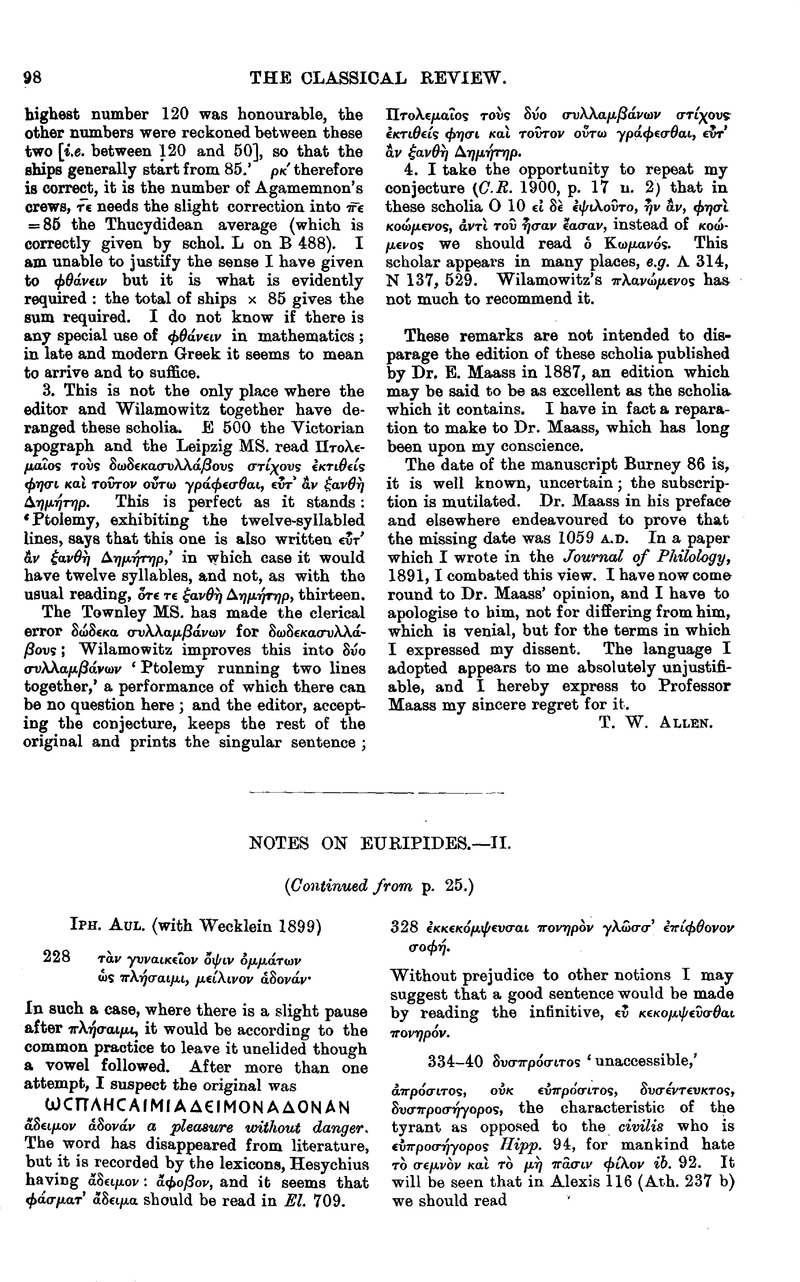No CrossRef data available.
Article contents
Abstract

- Type
- Review Article
- Information
- Copyright
- Copyright © The Classical Association 1901
References
page 99 note 1 Soph. fr. 85. 8 may be restored by reading ![]() (for ντχών) ‘and to compass its desires by means which poverty, even when favoured by fortune, is unable to command,’ a short way of saying
(for ντχών) ‘and to compass its desires by means which poverty, even when favoured by fortune, is unable to command,’ a short way of saying ![]() .
.
page 99 note 2 Compare also Theognis 381.
page 100 note 1 I suggest that the passage originally ran as follows:  ‘since he is most “piercing,” penetrating, perspicuous (properly the epithet of an ρμηνες), and will, if he chooses, bring many things to light; whereas if he utters a dark word, there is no one so impenetrable and obscure.’
‘since he is most “piercing,” penetrating, perspicuous (properly the epithet of an ρμηνες), and will, if he chooses, bring many things to light; whereas if he utters a dark word, there is no one so impenetrable and obscure.’
page 102 note 1 For instance, Ar. Ach. 291, Aesch. Pers. 332, and (as I think) Soph. O. T. 815.
page 103 note 1 I take this occasion of restoring to Mr Housman the credit for the view that in Ag. 1658 καιρν is an explanation of ὥραν.
page 103 note 2 Hence the verb πανεειν (see Thesaur.). In Dion. Hal. V. 356 (Nanck Trag. Fr. 510) ![]() should surely be πανεθη. It may seem too strong a word to use of Poseidon, but παιδεθη is undoubtedly too mild, and compare the story of Zeus and Antiope.
should surely be πανεθη. It may seem too strong a word to use of Poseidon, but παιδεθη is undoubtedly too mild, and compare the story of Zeus and Antiope.
page 104 note 1 In O.C. 1241 therefore you could read ![]() for χειμερα as οὐρνια (Erfurdt) for οὐρανα in 1466.
for χειμερα as οὐρνια (Erfurdt) for οὐρανα in 1466.
page 105 note 1 In Bacchyl. xviii. 29 since Blass now gives the MS. as ![]() .…it would seem to have been
.…it would seem to have been ![]() as
as ![]() in xvi. 24. It is a pity Prof. Jebb's
in xvi. 24. It is a pity Prof. Jebb's ![]() should not be confirmed.
should not be confirmed.


